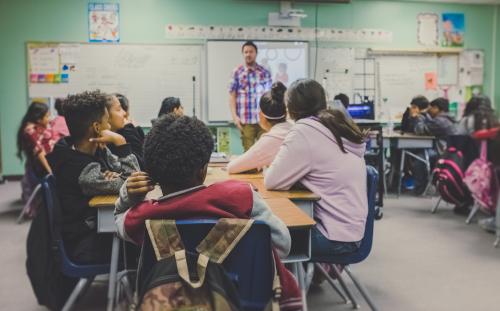
How Volunteering Can Help Young People with SEND
The Life Chances Fund supports 16-24-year-olds with special educational and complex needs to secure sustained work. This is done by working to overcome their barriers to learning and achievement, to further build on their confidence in themselves and their abilities.
Getting some experience through volunteering is one of a number of ways to gain the knowledge and skills needed for the workplace. It often isn’t a quick and easy process, but through research in collaboration with The University of Nottingham, we’ve uncovered just how invaluable volunteering can be.
The Social Impact Game is an initiative that offers students from The University of Nottingham an opportunity to use their knowledge and skills, working alongside local organisations, to make a social impact in their community. The students carried out some research into the programme and the range of positive outcomes that are being achieved by the young people taking part. For us at Futures, the students’ findings have been really valuable, as we have been able to learn more about the impact that our support is having on young people, and the positive difference that the Future Impact programme is making in the lives of lots of young people across Nottingham and Nottinghamshire.
Key findings from Life Chances Fund Research
Volunteering offers flexibility and the chance for young people to learn and gain skills in a more informal environment than the workplace, so to be able to dip in and out may be beneficial for the more challenging cases/those who have more barriers. Not only does volunteering help develop a young person’s independence and confidence, it helps to build good habits, a crucial one being punctuality, essential for a future in work.
These kind of jobs offer the chance to hear positive feedback in the person, not just as a reference, inspires them and leads to greater engagement and success. Positive feedback was found to be very effective at this.
“Hard” benefits of volunteering:
- Life Chances participants who have achieved volunteering related outcomes are 2.5x times more likely to achieve positive outcomes than the average young person enrolled on the Life Chances programme.
- 73% of those who have achieved a volunteering related outcome have also entered education or training, in comparison to 57% across the entire program.
- 20% of those who have achieved volunteering related outcomes have acquired an entry level qualification.
- 20% of those who have achieved volunteering related outcomes have acquired a level 1 NVQ.
“Soft” benefits of volunteering:
- Boost in confidence
- Shows commitment
- Transferable skills
- Great for your CV
- Social skills
- Supports independence
- Supports physical and mental wellbeing
“Projects like Life Chances Fund are really important as they provide ongoing, personalised support to young people, provided at their pace. The project enables us to make a real impact by supporting and empowering young people to develop important skills which can help them progress in many areas of life like education, work, social and home life.” Esther Murray, Team Manager of NEET Reduction and Schools, Specialist Support Team, Futures for You
This project is funded by the Department for Digital, Culture, Media and Sport through the Life Chances Fund, and administered by The National Lottery Community Fund.
More articles

Why we need to support our young people through this disruption
The education of young people is vital during this time and allowing them to continue learning and developing their skills is essential, but so is doing our part to support them in their time of need.
Read More
We're Re-Opening!
We're opening some of our doors, expanding our services and doing our best to support as many people as we can during these uncertain times.
Read More